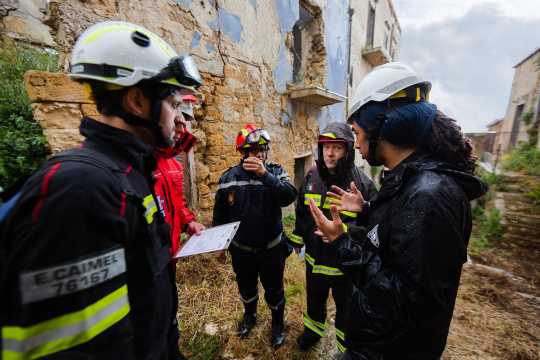Space exploration has long been a dream of humanity, a quest to unlock the mysteries of the universe and push the boundaries of our knowledge and capabilities. From the first satellites sent into orbit to the historic landing on the moon and the ongoing missions to Mars and beyond, space exploration has captured the imagination of people around the world. At the heart of this awe-inspiring endeavor are the engineers.
Engineers play a crucial role in space exploration, designing, building, and operating the spacecraft and technology that make these missions possible. They are the unsung heroes behind the scenes, working tirelessly to solve complex problems and overcome technical challenges to ensure the success of every mission.
One of the key areas where engineers are instrumental in space exploration is in the design and construction of spacecraft. These engineers are responsible for developing the blueprints and plans for the vehicles that will transport astronauts and scientific instruments into space. They must consider every detail, from the materials used in the construction to the propulsion systems that will propel the spacecraft through the vacuum of space. The engineers must also ensure that the spacecraft can withstand the harsh conditions of space, including extreme temperatures, radiation, and microgravity.
Engineers are also crucial in the development of the technology that enables space exploration. From the complex communication systems that allow ground control to communicate with spacecraft to the advanced navigation systems that guide the spacecraft through space, engineers play a pivotal role in ensuring that missions are successful. They are responsible for developing the software that controls the spacecraft, as well as the hardware that powers its systems. Without the expertise of engineers, spacecraft would be unable to navigate the vast distances of space or collect the data needed to advance our understanding of the universe.
In addition to designing and building spacecraft and technology, engineers also play a crucial role in the operation of space missions. They are responsible for monitoring the health and performance of spacecraft in real-time, making decisions to ensure the safety and success of missions. They must be prepared to troubleshoot any technical issues that arise and quickly find solutions to keep the mission on track. Engineers also play a critical role in the planning and execution of mission objectives, working with scientists and astronauts to ensure that all goals are met.
One of the most famous examples of the vital role engineers play in space exploration is the Apollo 13 mission. When an oxygen tank exploded onboard the spacecraft, endangering the lives of the astronauts, it was the quick thinking and problem-solving skills of the engineers on the ground that ultimately saved the crew. By working together to devise a plan to use the lunar module as a lifeboat and carefully rationing the spacecraft’s resources, the engineers were able to bring the astronauts safely back to Earth. This successful mission is a testament to the ingenuity and dedication of engineers in the face of adversity.
As we look to the future of space exploration, engineers will continue to play a vital role in advancing our capabilities and knowledge. With plans to return to the Moon, establish a human presence on Mars, and explore distant planets and moons, the need for skilled engineers will only increase. New technologies, such as advanced propulsion systems, innovative spacecraft designs, and autonomous exploration vehicles, will require the expertise of engineers to bring these ideas to life.
In addition to designing and building spacecraft, engineers are also exploring new frontiers in space exploration through robotics and artificial intelligence. Robotic missions, such as the Mars rovers and the Voyager spacecraft, have provided invaluable data and insights into our solar system and beyond. Engineers are at the forefront of developing these technologies, pushing the boundaries of what is possible and opening up new opportunities for exploration.
The role of engineers in space exploration is not limited to the technical aspects of missions. They also play a critical role in inspiring future generations of scientists, engineers, and astronauts. By sharing their passion for exploration and innovation, engineers can ignite a spark of curiosity in young minds and motivate them to pursue careers in STEM fields. Programs such as NASA’s Artemis program, which aims to land the first woman and the next man on the Moon by 2024, are inspiring the next generation of engineers to dream big and reach for the stars.
In conclusion, engineers are essential to the success of space exploration and have been instrumental in pushing the boundaries of what is possible. From designing and building spacecraft and technology to operating missions on the ground, engineers are at the forefront of advancing our understanding of the universe. As we continue to explore new frontiers in space, the expertise and dedication of engineers will be crucial in shaping the future of space exploration. The possibilities are endless, and with the talent and ingenuity of engineers, we can continue to unlock the mysteries of the cosmos and expand our horizons beyond Earth.

